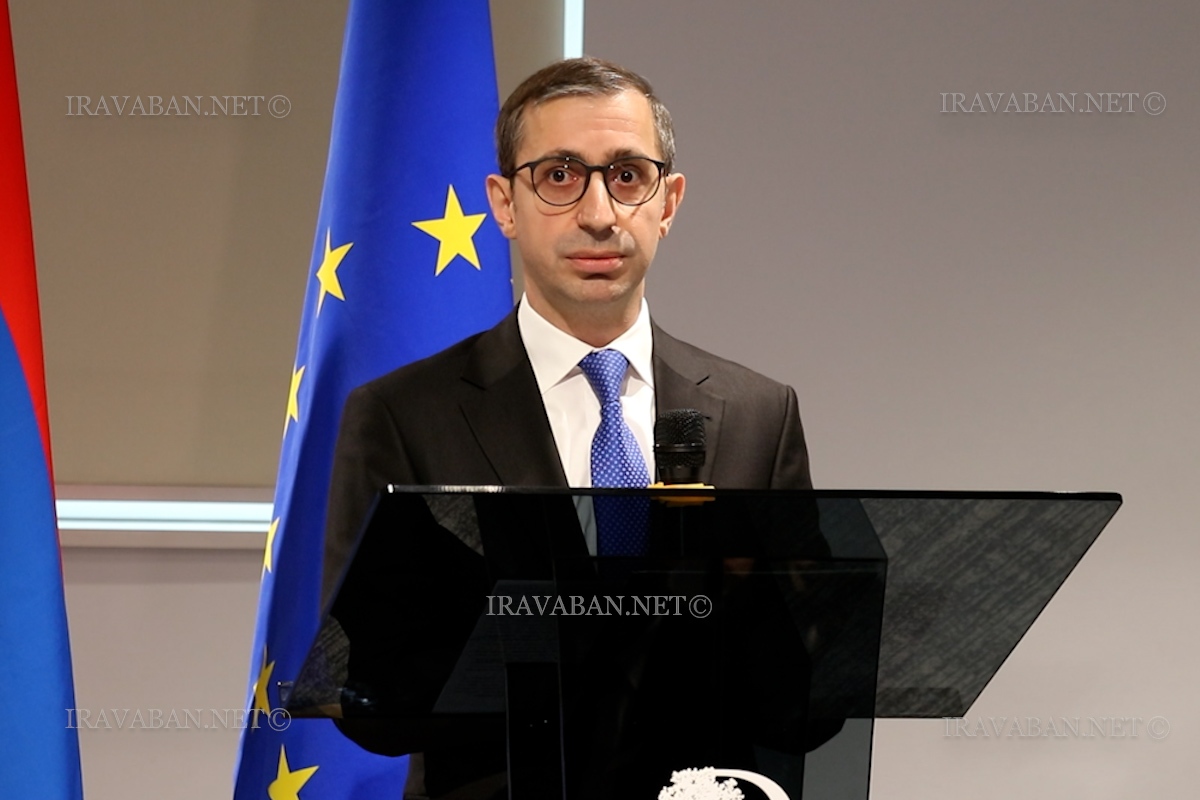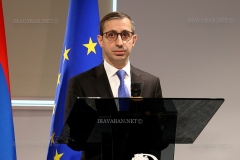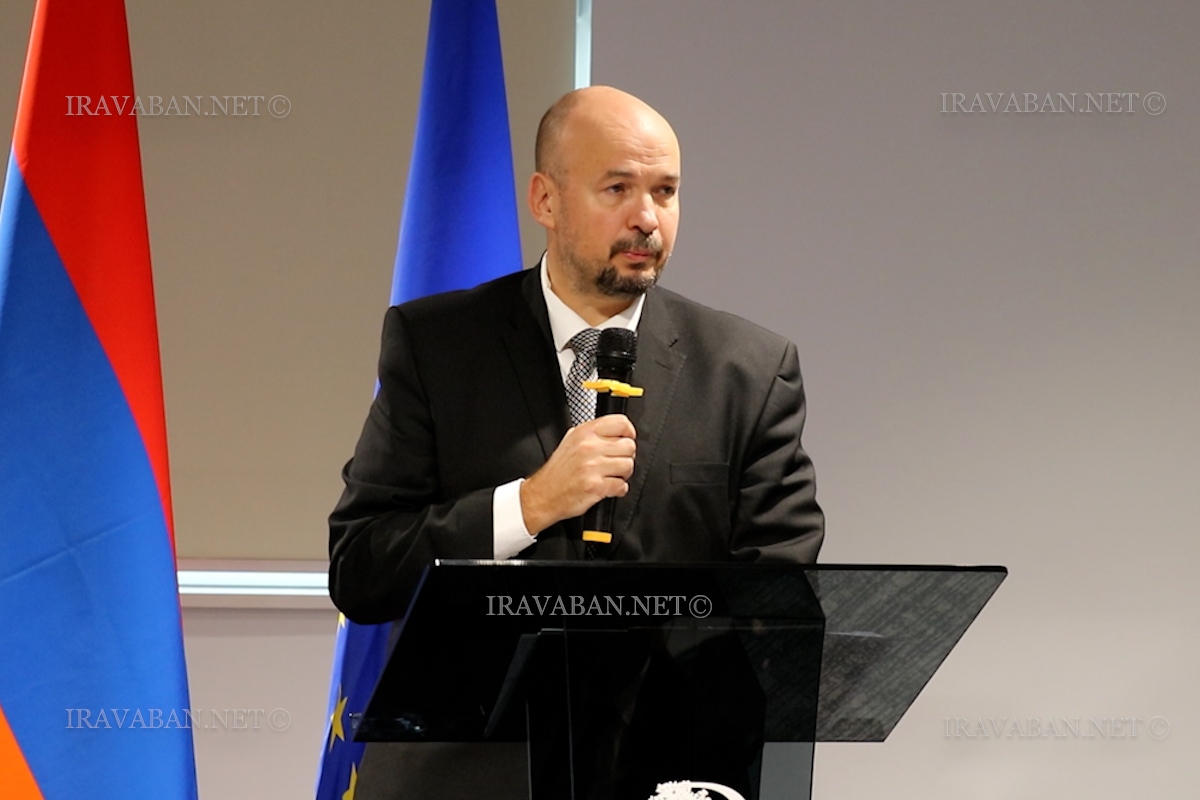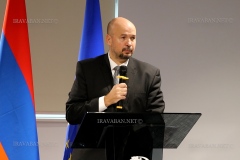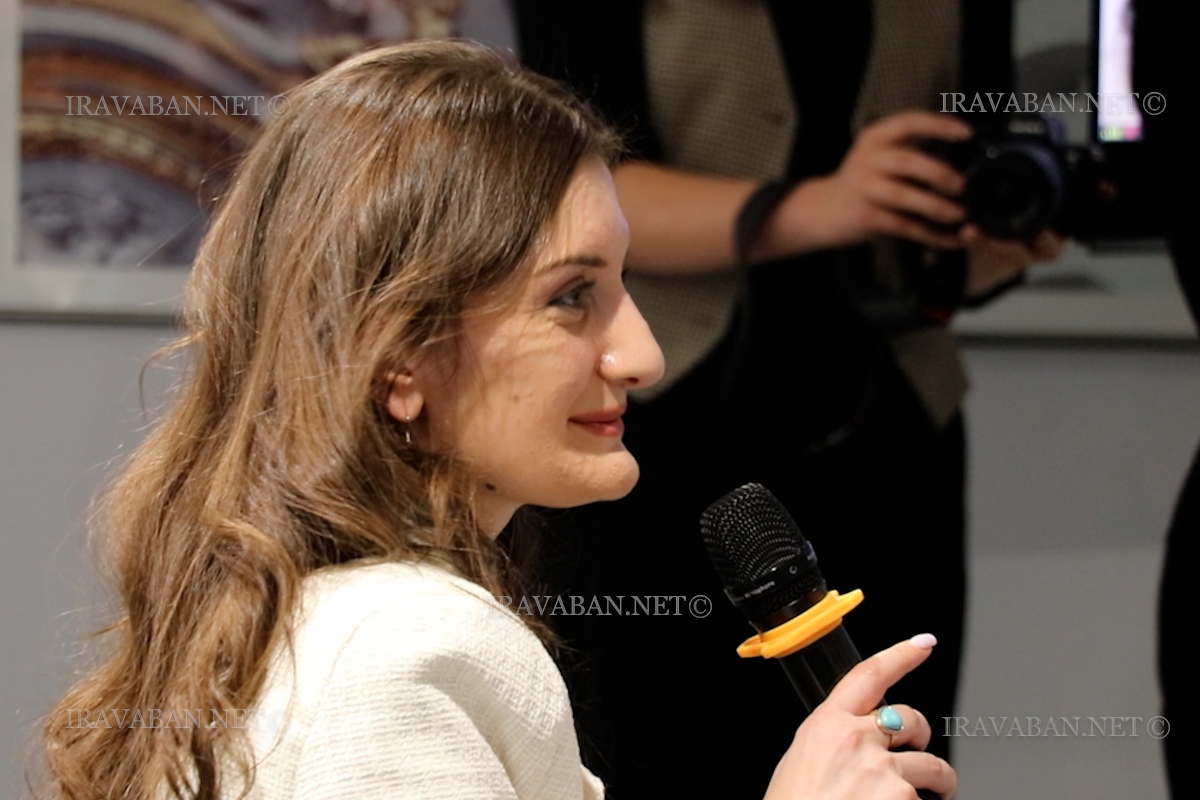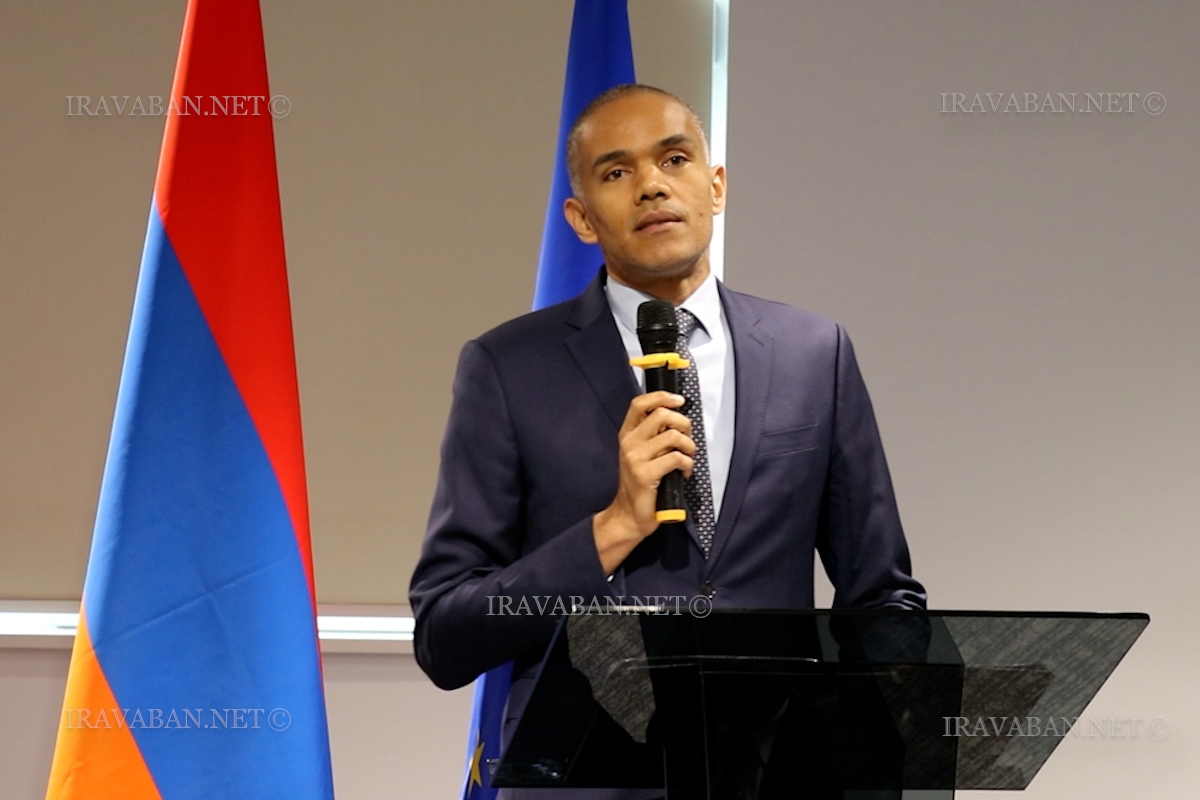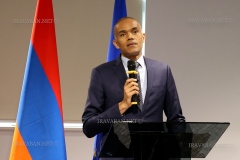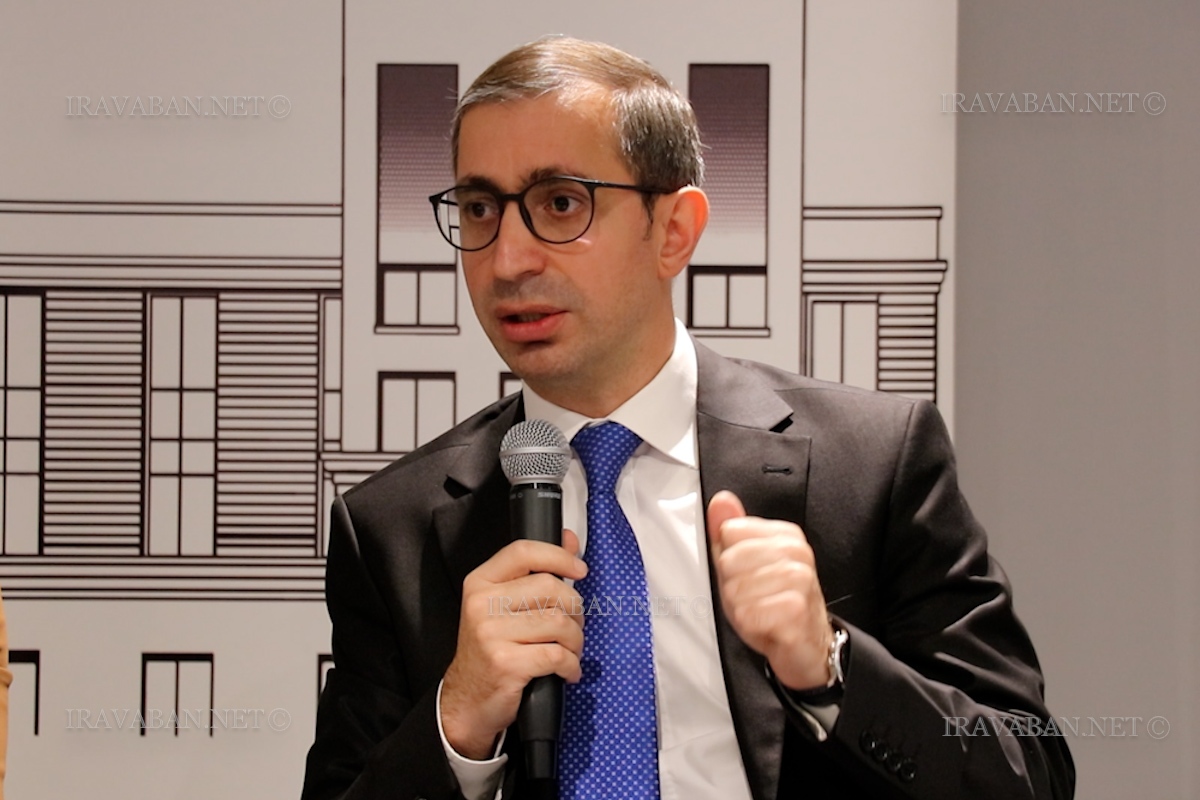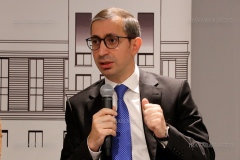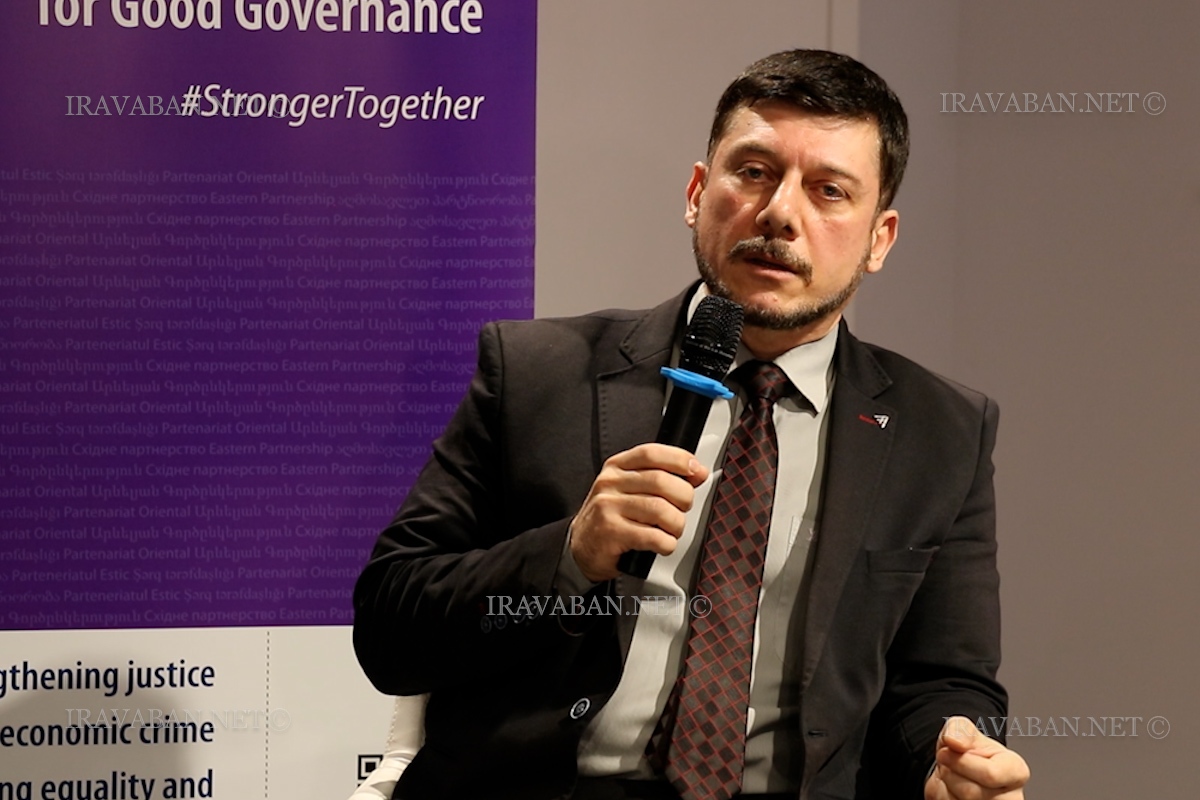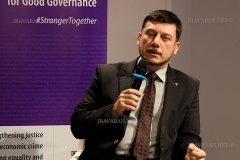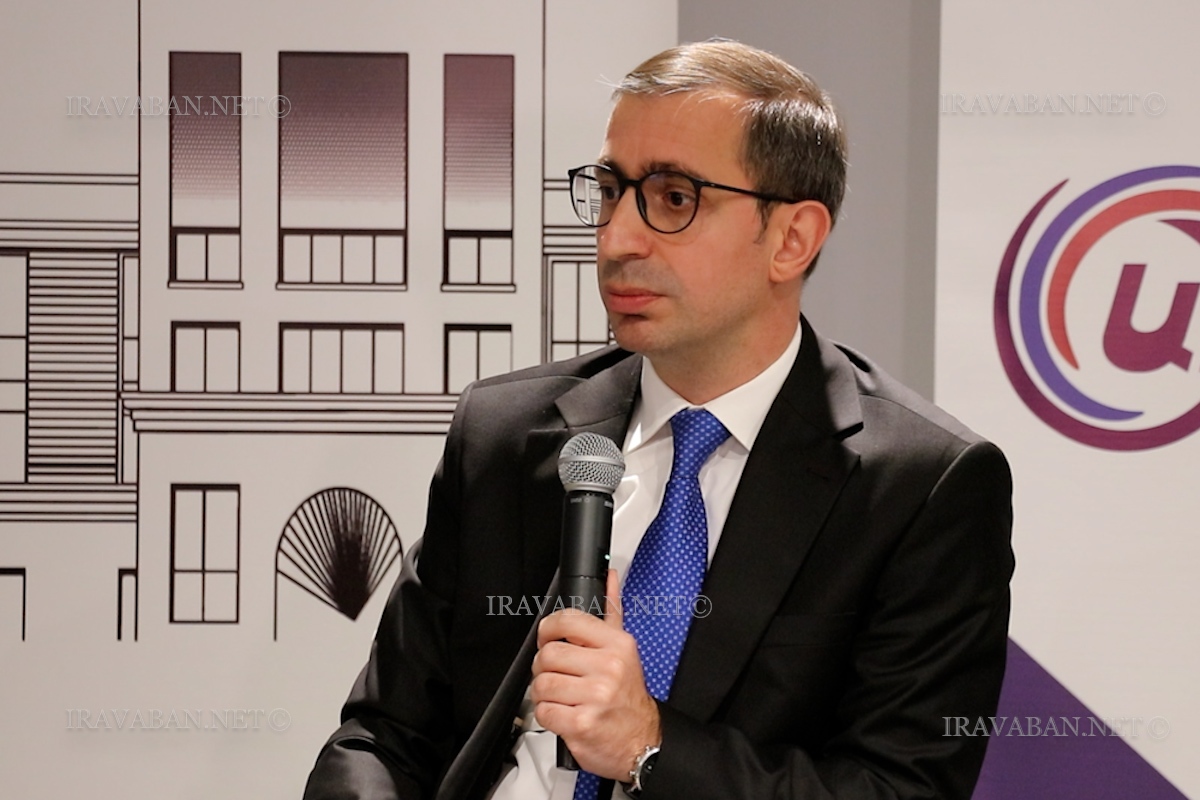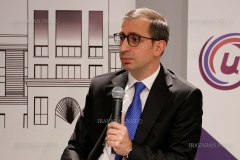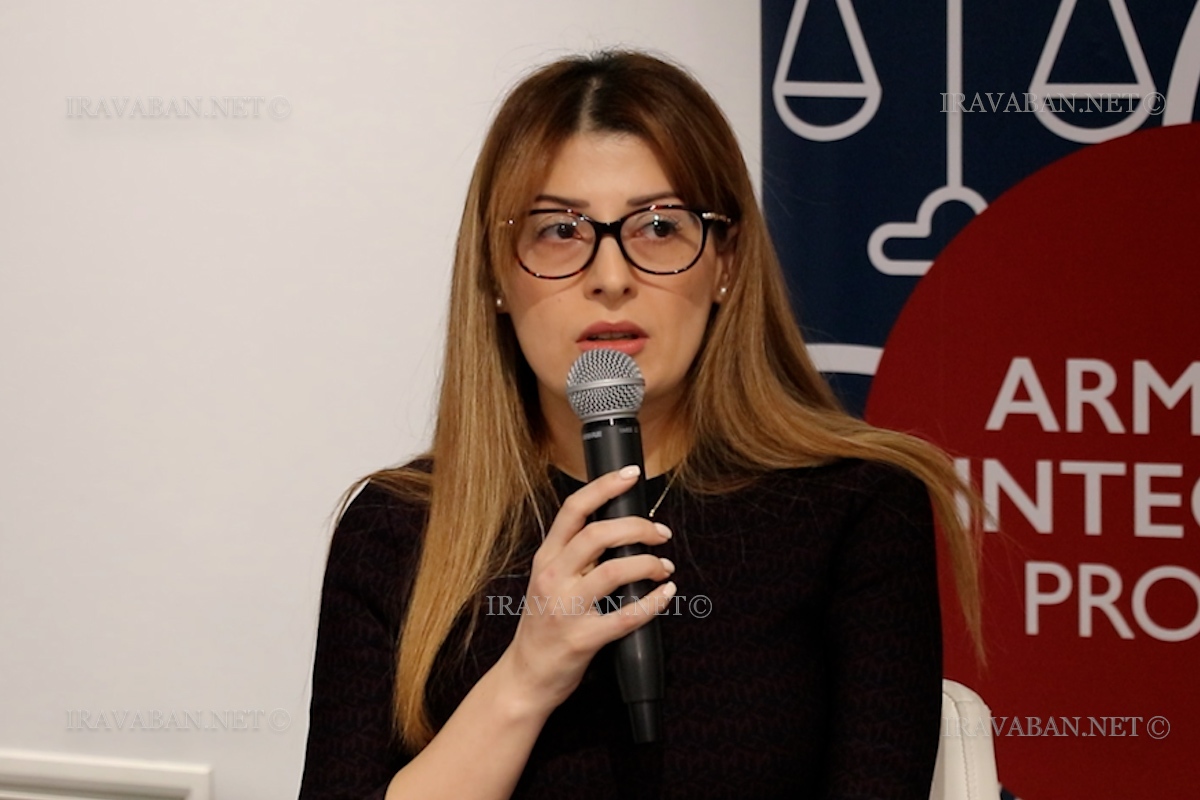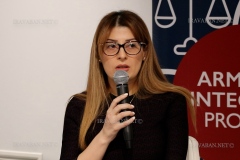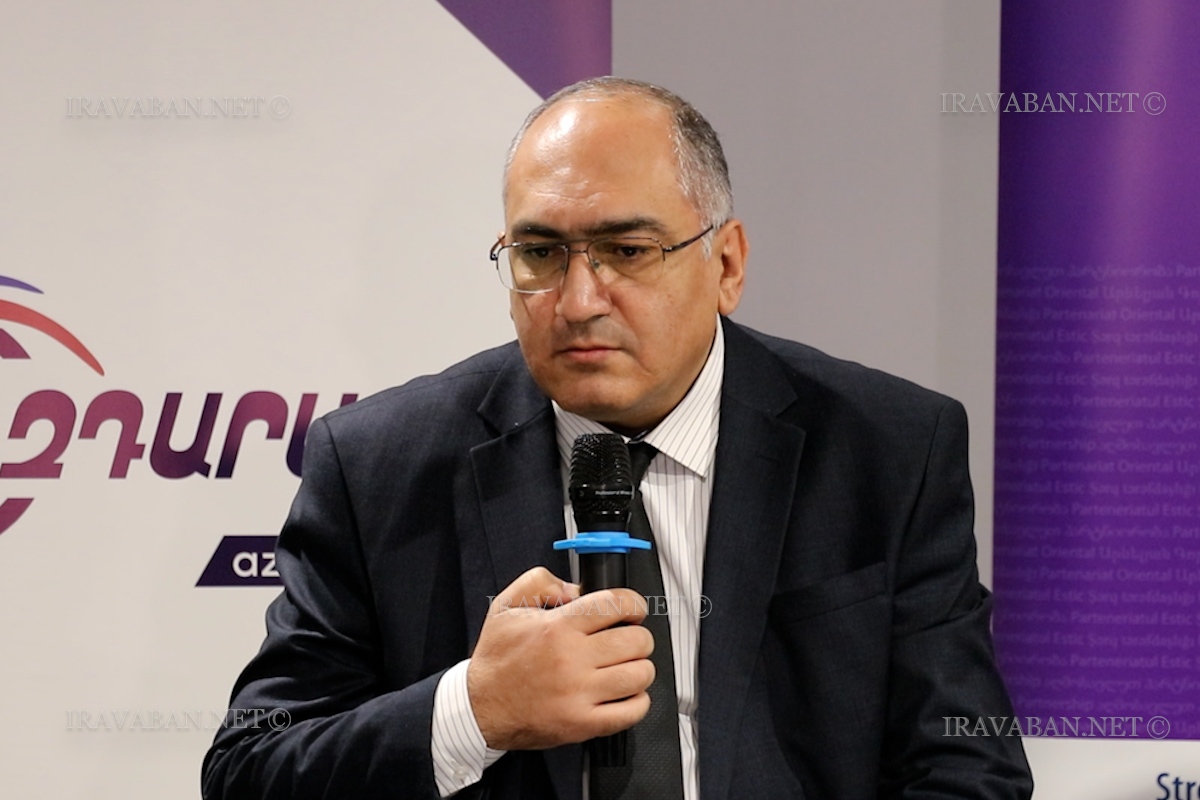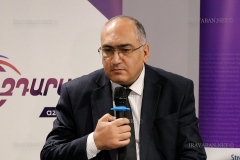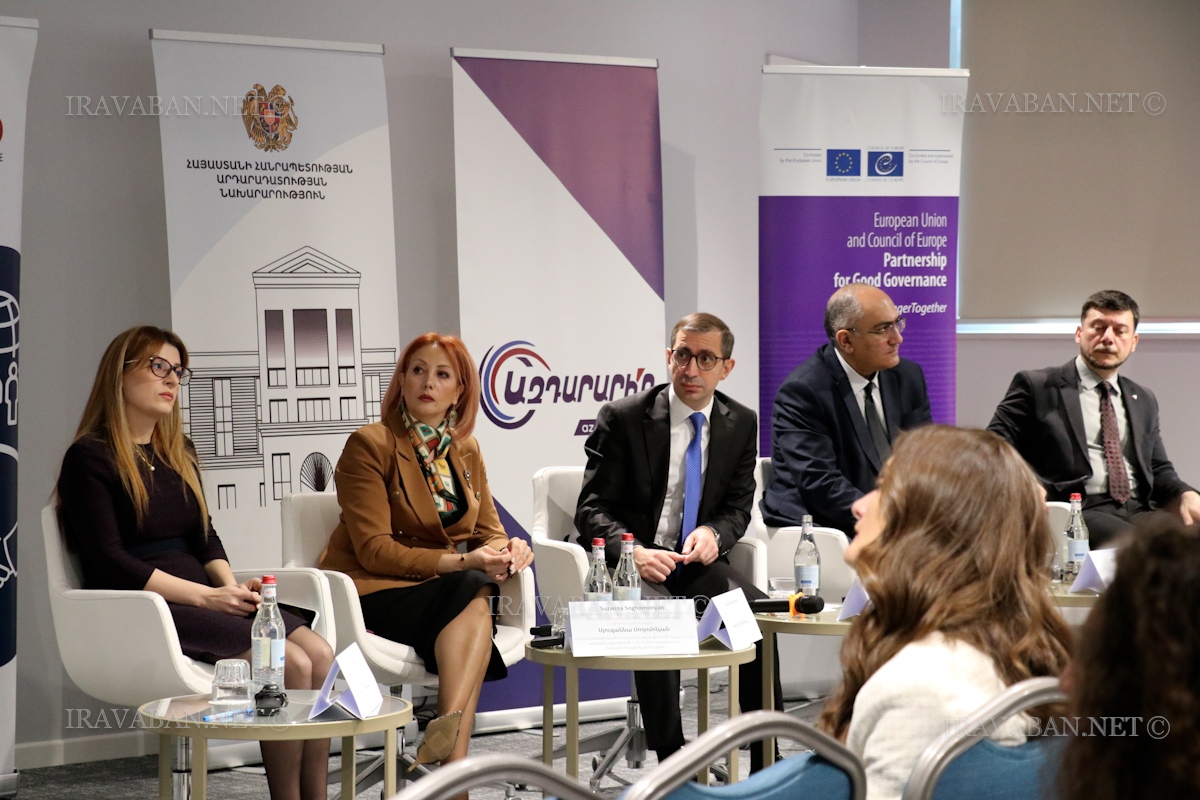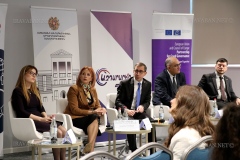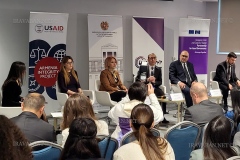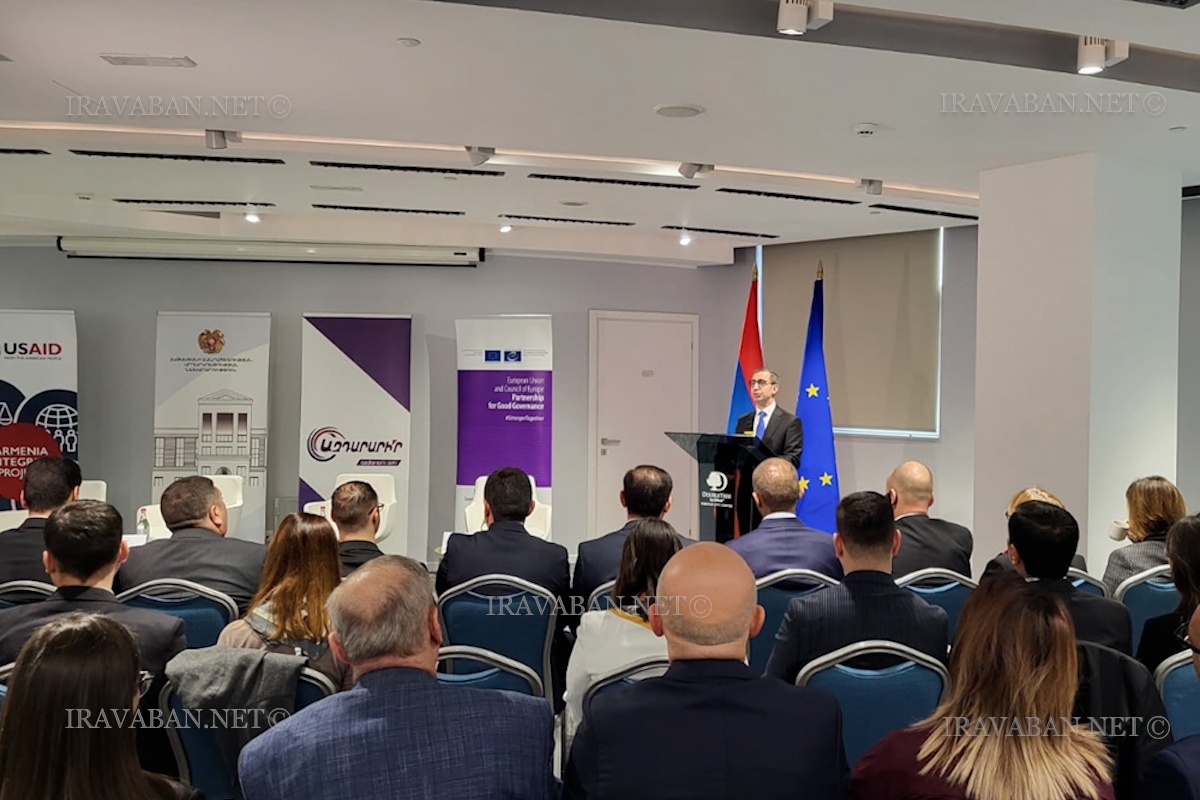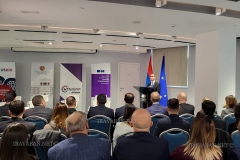A Large-Scale Awareness Campaign for the Whistle-Blowing System launched: Ministry of Justice, ALA and 6 more CSOs signed a Memorandum
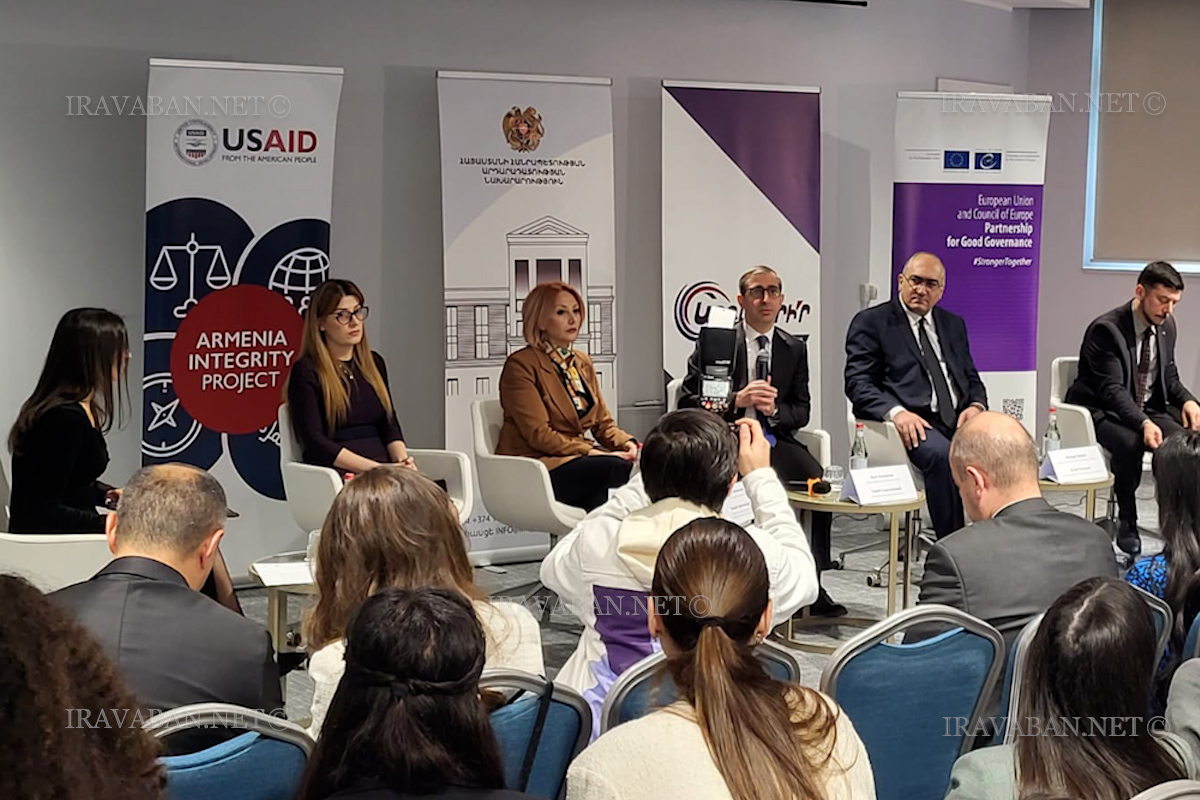
As part of the fight against corruption, the Ministry of Justice launched a nationwide awareness program on communication activities of the Whistle-Blowing System for the 2023 and a large-scale awareness campaign aimed at the implementation of the program.
On 29 November, the official launch of the program entitled event “Promotion and Active Use of the Whistle-Blowing System” took place. Mr. Karen Karapetyan, Deputy Minister of Justice, Mr. Jan Plešinger, Head of Political, Press and Information Section of the Delegation of the European Union to Armenia, Mr. Maxime Longangué, Deputy Head of Council of Europe Office in Yerevan delivered opening speeches at the event “Promotion and Actively Use the Whistle-Blowing System”. All speakers highlighted the importance of implementation of the Awareness campaign
The Ministry of Justice, the “Armenian Lawyers’ Association” NGO, the “NGO Center” NGO and 5 other CSOs signed a Memorandum of Cooperation at the event. The Memorandum aimed to increase the level of awareness of the whistle-blowing system among the public as a result of mutual cooperation.
“The Whistle-Blowing platform (azdararir.am) provides an opportunity to the public-at-large to report on situations related to corruption crimes, violations of ethics and integrity in the state system and local self-government system, both anonymously and by submitting personal data. As in all newly implemented systems, in the case of launching the whistle-blowing system, in the cycle of its organic development, the need for their further improvement, introduction of new changes based on analyzes of improvement appears. It is particularly important when it we speak about the protection of personal data and their digital solutions,” Mr. Karen Karapetyan noted in his speech.
He said that when talking about the improvement of the system, it is important to promote the active involvement of the public as well.
“Following the performance indicators of the whistle-blowing system during the past three years, we developed a nationwide awareness program about this system which is being launched now. For the implementation of the project, we tried to mobilize all the means and resources available in the state system,” the Deputy Minister said, emphasizing the cooperation of civil society organizations in these work.
Mr. Jan Plešinger, Head of Political, Press and Information Section of the Delegation of the European Union to Armenia, also delivered an opening speech. “Legal protection of whistleblowers is very important, even at the EU level. Whistleblowers often hold back for fear of retaliation,” Mr. Jan Plešinger, speaking about the awareness issue of whistleblowers’ rights.
According to Mr. Maxime Longangué, Deputy Head of Council of Europe Office in Yerevan, the protection of whistleblowers is the most important aspect of the fight against corruption in any country. “At the same time, an effective and strong legal framework and punishment mechanisms may not be enough if countries are not committed to creating a real whistle-blowing culture,” Maxime Longangué noted.
After the signing of the memorandum a panel discussion took place, during which the representatives of state departments and non-governmental organizations discussed the legislative structures of the Whistle-Blowing System, the mechanisms whistleblowers’ protection and other issues.
Karen Karapetyan emphasized that the whistleblowers’ protection mechanisms have been improved in terms of personal data protection. The Human Rights Defender was also given the function of monitoring the organization process of whistleblowers’ protection. “An opportunity to apply to the HRD if necessary has been provided to the whistleblower as well. The latter can also turn to his employer, law enforcement agencies to receive the necessary support for protection,” the Deputy Minister said.
Improving and spreading the Whistle-Blowing System will be a very important tool to make the work in the anti-corruption sector effective. Mr. Mushegh Babayan, the Deputy Chairman of the Anti-Corruption Committee mentioned in his speech.
“In recent years, the groundbreaking changes that have taken place in terms of the attitude towards whistleblowers, persons reporting and informing about crimes, , are visible and encouraging in the context of public perception. Especially in terms of citizens who report corruption crimes, we can say that we have a significant increase in the number of those who report and those willing to cooperate with preliminary investigation and prosecution authorities,” Mushegh Babayan said.
Ms Syuzanna Soghomonyan, the Anti-Corruption Expert of the Armenian Lawyers’ Association, CSF ANP WG1 Coordinator, spoke about the problem of negative public attitude towards whistleblowers, noting that there is a misunderstanding about the whistle-blowing system. “We have inherited a legal mindset from the Soviet era that whistleblowers are considered ‘snitchers.’ The first problem that we should be able to overcome is that this should be removed from everyday conversation. The important thing is that the composition of the subjects of perception change should be not only the ordinary citizen, but also the representative of the law enforcement agency, the public servant, so that the latter are on the same level with the public and vice versa, we should create such an image that the whistleblower is an honest citizen who cares for the state.” Syuzanna Soghomyan said.
According to the Anti-Corruption Expert, public awareness is important. “It is necessary to work with people using all publicly available methods, to inform about the possibilities of reporting that exist in the RA today, about reporting platforms that can ensure both the safety and privacy of a person. In other words, the whistleblower must be sure that in case of whistleblowing, the state stands behind him/her with its security guarantees and under no circumstances can he/she become a victim of harmful actions and reprisals,” the expert concluded.
According to Mr. Hovsep Khurshudyan, it is necessary to make changes in the Law of the Republic of Armenia “On the Whistle-Blowing System”, to “bring the law enforcement system into a more active role”.
“Five years ago, I studied, a public opinion poll that had been conducted, and only 5-6 percent was ready to report. Although 57 percent consider whistle-blowing positive, they say it’s good that there is whistle-blowing, but I won’t do it. Of course, those cultural barriers must be overcome. It is very good that the Ministry of Information and Communication Technology is also involved in these issues, because without the solution of these fundamental problems we will not be able to achieve our goal in terms of the effectiveness of the whistle-blowing system,” he said. Hovsep Khurshudyan also thanked the Armenian Lawyers’ Association of, which stands at the roots of the introduction of the system.
Ms Mariam Galstyan, a member of the Corruption Prevention Commission, asked the speakers a question, noting that whistle-blowing should be the behavior of citizens from childhood. “The public should be ready to understand that it is obliged to report a corruption case. I want to ask a question regarding the promotion of reporting. Don’t you think there would be a gap between the idea and the incentive, because if it’s my duty, wouldn’t the fact that I’m going to report and get paid for it in any way detract from the overall noble idea of whistle-blowing?” Mariam Galstyan said.
According to Deputy Minister of Justice Karen Karapetyan, the ideologies of reporting and compensation are mutually exclusive. “From the moment when a person does it for compensation, both individual and self-interested risks are introduced into that action, that idea,” the Deputy Minister noted and emphasized that when introducing the best international standards, one should take into account local conditions and culture during its localization.
Syuzanna Soghomonyan presented the international experience, noting that incentive systems were introduced by Eastern Partnership countries, for example, by the Ukraine, and EU countries Lithuania, Slovakia, etc.
Mushegh Babayan noted that incentive tools at this stage can help intensify the process.
At the end of the meeting, Karen Karapetyan thanked the attendees and emphasized that the system is in place, but requires further development. “I believe the coming 12 months will be very productive,” he concluded.

